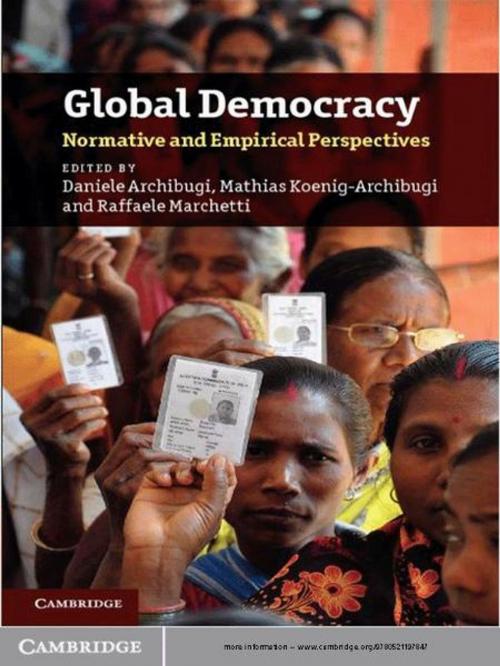Global Democracy
Normative and Empirical Perspectives
Nonfiction, Social & Cultural Studies, Political Science, Politics, History & Theory, Social Science| Author: | ISBN: | 9781139179270 | |
| Publisher: | Cambridge University Press | Publication: | October 27, 2011 |
| Imprint: | Cambridge University Press | Language: | English |
| Author: | |
| ISBN: | 9781139179270 |
| Publisher: | Cambridge University Press |
| Publication: | October 27, 2011 |
| Imprint: | Cambridge University Press |
| Language: | English |
Democracy is increasingly seen as the only legitimate form of government, but few people would regard international relations as governed according to democratic principles. Can this lack of global democracy be justified? Which models of global politics should contemporary democrats endorse and which should they reject? What are the most promising pathways to global democratic change? To what extent does the extension of democracy from the national to the international level require a radical rethinking of what democratic institutions should be? This book answers these questions by providing a sustained dialogue between scholars of political theory, international law and empirical social science. By presenting a broad range of views by prominent scholars, it offers an in-depth analysis of one of the key challenges of our century: globalizing democracy and democratizing globalization.
Democracy is increasingly seen as the only legitimate form of government, but few people would regard international relations as governed according to democratic principles. Can this lack of global democracy be justified? Which models of global politics should contemporary democrats endorse and which should they reject? What are the most promising pathways to global democratic change? To what extent does the extension of democracy from the national to the international level require a radical rethinking of what democratic institutions should be? This book answers these questions by providing a sustained dialogue between scholars of political theory, international law and empirical social science. By presenting a broad range of views by prominent scholars, it offers an in-depth analysis of one of the key challenges of our century: globalizing democracy and democratizing globalization.















